Cursor AI vs GitHub Copilot: Choosing the Right AI Tool for Developers
In today’s fast-paced development landscape, AI-powered coding assistants are transforming the way programmers approach their work. Two leading tools in this space are Cursor AI and GitHub Copilot. This article compares these tools in terms of features, ease of use, integration capabilities, and more to help you find the best fit for your development needs.

Introduction to AI-Powered Coding Assistants
AI has revolutionized software development, enabling developers to write code faster, with fewer errors, and with greater creativity. Both Cursor AI and GitHub Copilot are at the forefront of this transformation. They offer real-time code suggestions, error detection, and the ability to predict entire functions. The challenge lies in determining which tool better suits your workflow. Let's explore their offerings, strengths, and limitations.
What is Cursor AI?
Cursor AI is an advanced AI-powered coding assistant that integrates seamlessly with popular Integrated Development Environments (IDEs). It’s designed to improve productivity by providing real-time code suggestions, error detection, and automated refactoring. Cursor AI learns from your coding style and adapts its suggestions to make them more personalized over time.

Key Features of Cursor AI:
Real-time Code Suggestions: Speeds up coding by suggesting code as you type.
Error Detection: Automatically highlights and suggests fixes for coding errors.
Automated Refactoring: Helps clean and optimize code to maintain efficiency.
Customization: Adaptable to individual coding styles and preferences.
Integration with IDEs: Compatible with Visual Studio Code, IntelliJ IDEA, and others.
Unique Selling Points:
Cursor AI provides a high level of customization, learning your coding patterns to offer more relevant suggestions. Its error detection and refactoring capabilities are particularly useful for maintaining clean, efficient code, making it ideal for large projects.
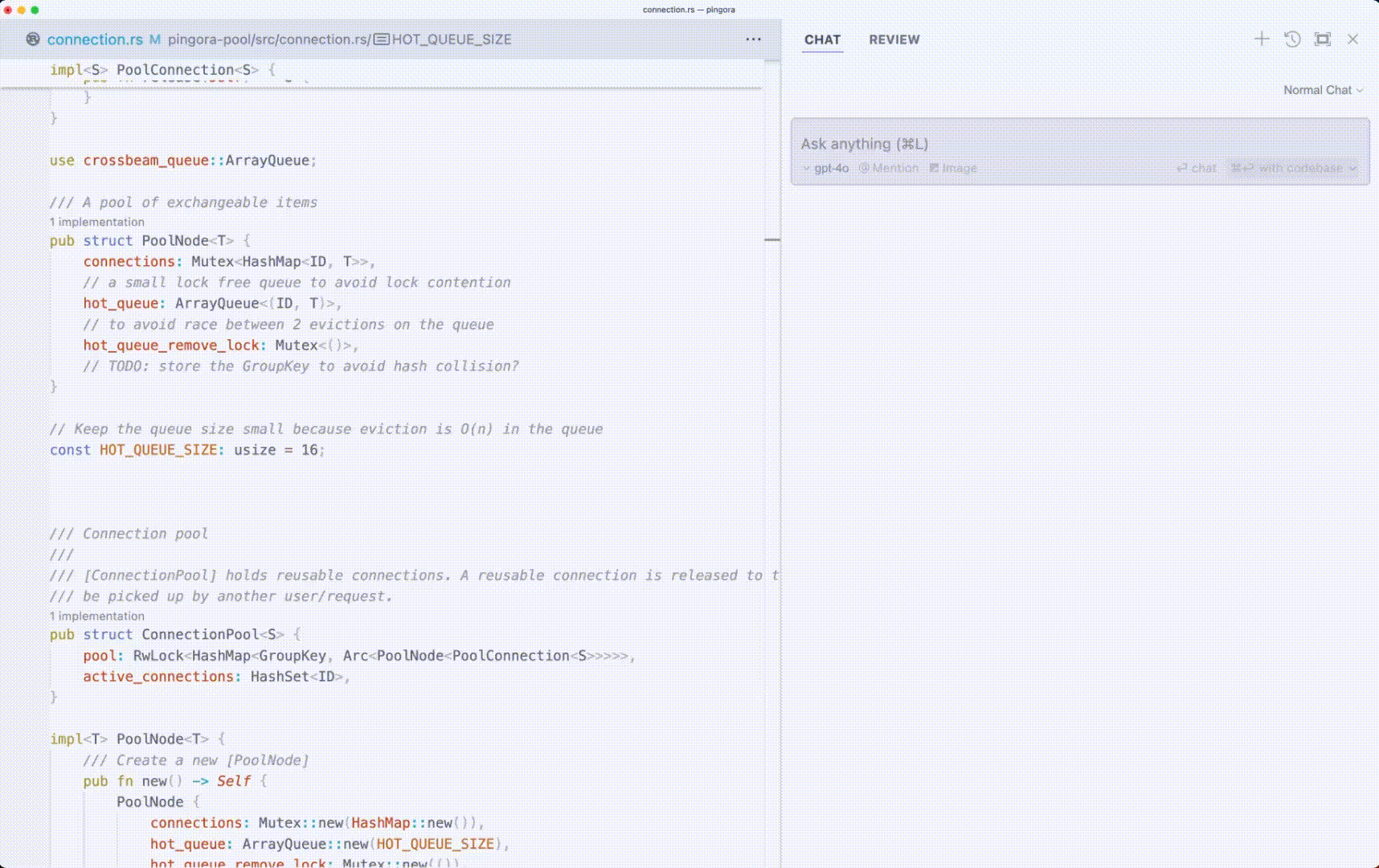
What is GitHub Copilot?
GitHub Copilot, developed by OpenAI and GitHub, leverages the massive amount of code on GitHub's platform to provide contextually relevant code suggestions. It supports multiple programming languages and is designed to assist developers by auto-completing code snippets.

Key Features of GitHub Copilot:
Code Completion: Suggests entire lines or blocks of code.
Multi-Language Support: Versatile across a wide range of programming languages.
Deep GitHub Integration: Uses GitHub repositories to provide contextual suggestions.
Natural Language Processing: Generates code from natural language instructions.
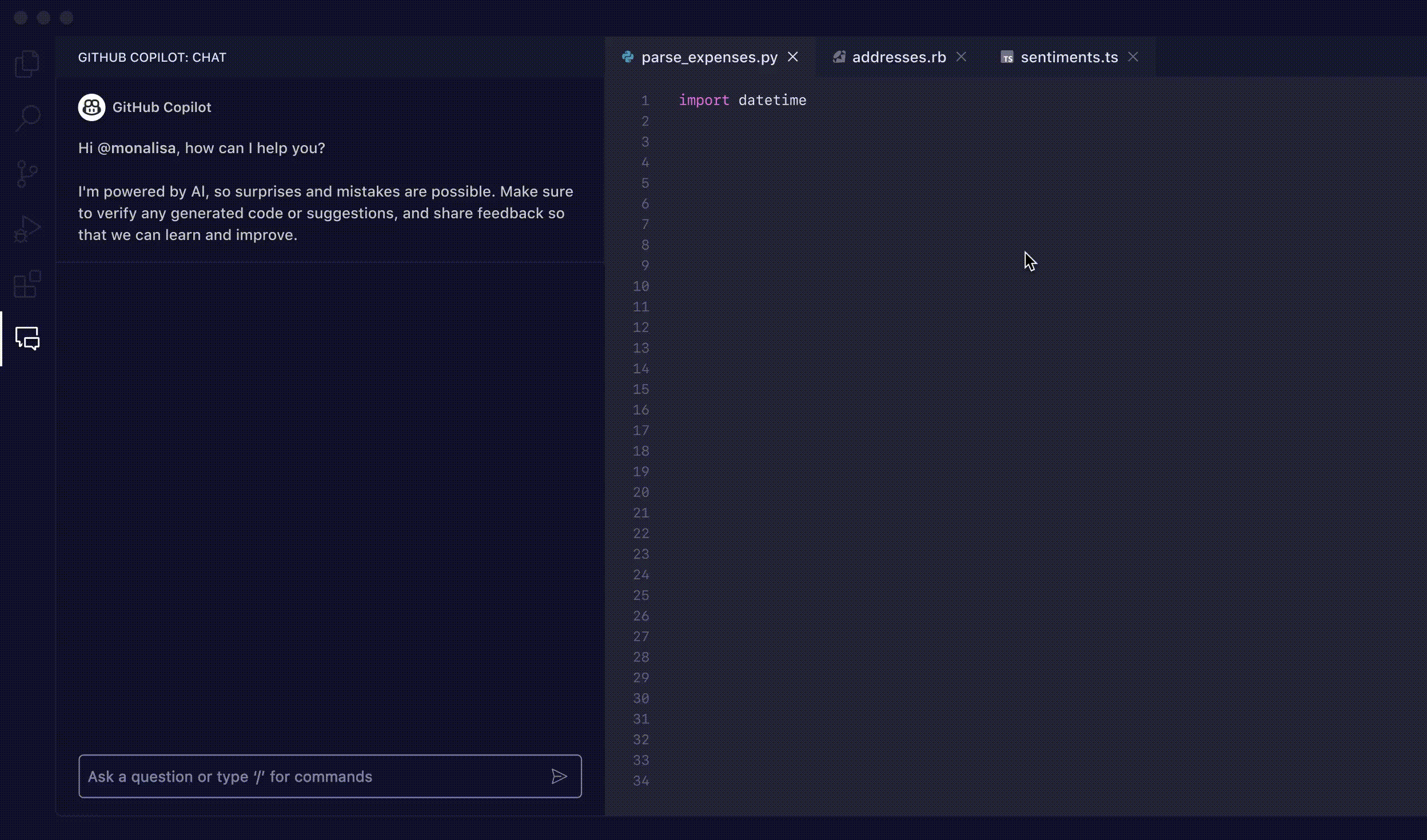
Unique Selling Points:
Copilot's extensive language support and integration with GitHub repositories give it an edge in providing contextually accurate code snippets. Its ability to generate code from plain English instructions is particularly beneficial for beginners or non-programmers.
Comparing Cursor AI and GitHub Copilot
Ease of Use:
Cursor AI: Offers a clean, user-friendly interface that makes it easy to get started, even for novices.
GitHub Copilot: Also user-friendly, particularly for those familiar with GitHub. However, it may require some acclimation for those new to GitHub's ecosystem.
Winner: Tie – Both tools are accessible, though GitHub Copilot might be slightly more complex due to GitHub integration.
Features and Functionality:
Cursor AI: Excels in customization and provides robust error detection and refactoring. It adapts to your coding style for more tailored support.
GitHub Copilot: Leverages GitHub’s vast codebase for context-aware suggestions and supports multiple languages.
Winner: Tie – Cursor AI is better for customization and refactoring, while GitHub Copilot excels in language support and natural language processing.
Integration Capabilities:
Cursor AI: Integrates smoothly with popular IDEs and supports APIs for further customization.
GitHub Copilot: Seamlessly integrates with GitHub, offering in-line suggestions based on repository content.
Language Support:
Cursor AI: Supports a wide range of popular programming languages.
GitHub Copilot: Offers extensive language support, leveraging GitHub’s codebase.
Winner: GitHub Copilot – Broader language support.
Performance and Accuracy:
Cursor AI: Offers high accuracy with real-time, personalized suggestions.
GitHub Copilot: Strong performance, but suggestions can sometimes be broad.
Winner: Cursor AI – More consistent accuracy due to its personalized approach.
Cost and Pricing:
- Cursor AI: Offers a tiered pricing model with a free version for individual developers and premium plans for teams.

- GitHub Copilot: Subscription-based with a free trial, but continued use requires payment.
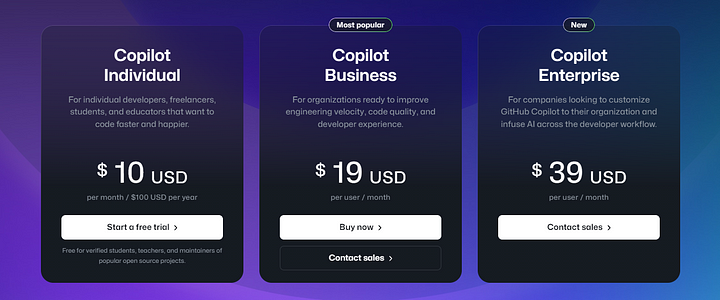
Winner: Cursor AI – More accessible with a free version.
The Importance of EchoAPI in IT Ecosystems
Integration capabilities become crucial when choosing an AI-powered coding assistant, and this is where EchoAPI plays a significant role. EchoAPI offers robust and seamless integration solutions that enhance both frontend and backend development. By incorporating EchoAPI into your AI assistant workflows, you can create a more streamlined and efficient development process.
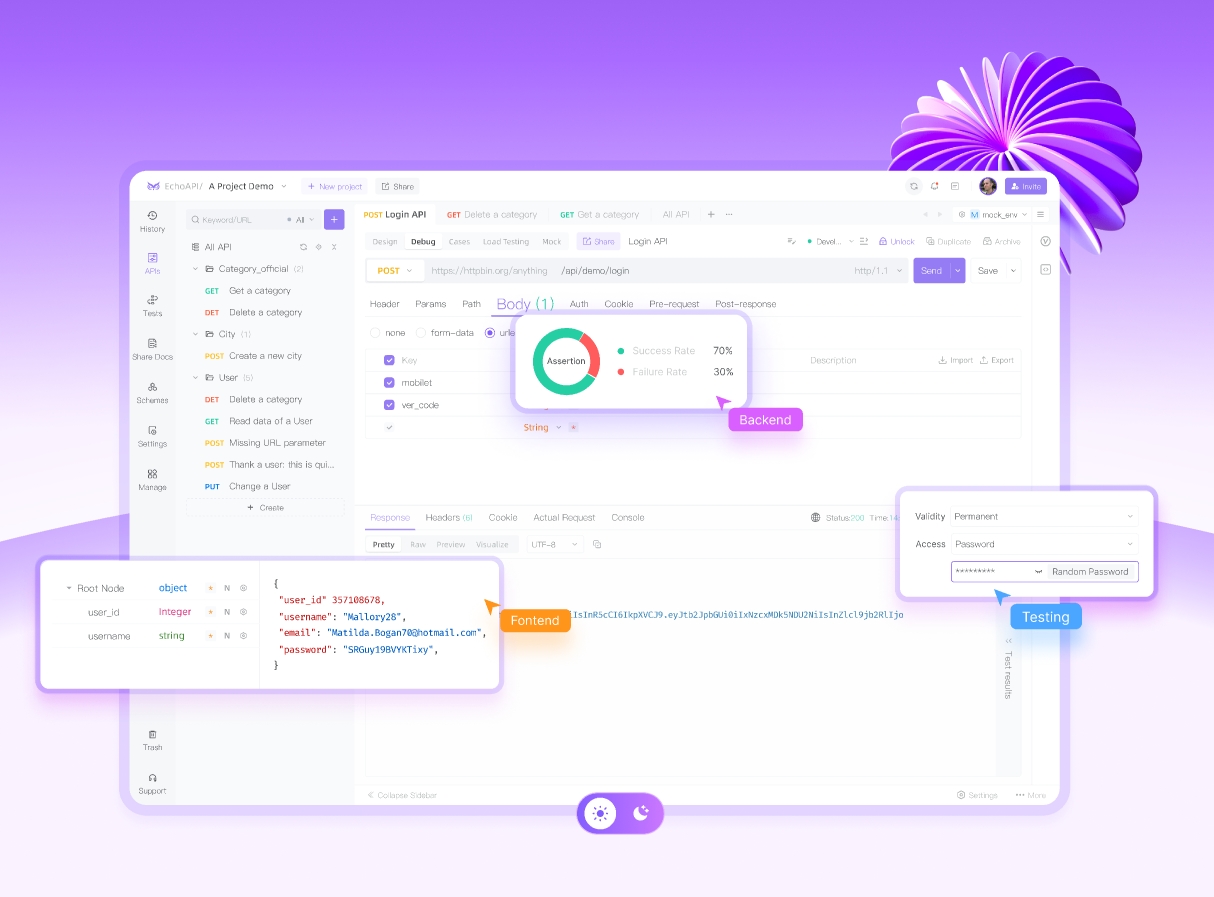
The Advantages of EchoAPI
EchoAPI stands out as a powerful API debugging and testing tool, offering a range of features designed to enhance developer productivity and streamline the API development lifecycle. Here are the key advantages of using EchoAPI:
No Login Required for Use
EchoAPI supports a hassle-free, no-login experience, allowing developers to quickly get started without dealing with cumbersome authentication processes.Multi-Protocol Support
EchoAPI is versatile in its support for multiple protocols, including HTTP, SSE (Server-Sent Events), and TCP, making it suitable for a wide range of API testing scenarios.Import Data from Popular Platforms
You can easily import data from other popular API tools like Postman, Swagger, Insomnia, and apidoc. This functionality drastically reduces the transition time and effort when migrating projects.One-Click API Documentation Generation
Generating comprehensive API documentation has never been easier with EchoAPI’s one-click documentation feature, ensuring your API docs are always up-to-date and ready to share.Automated Testing
EchoAPI supports automated testing, allowing developers to validate API functionality consistently and efficiently without manual intervention.Load Testing
With built-in load testing capabilities, EchoAPI helps you assess the performance of your APIs under various load conditions, ensuring they can handle real-world usage scenarios.Mock Services
EchoAPI includes support for mock services, enabling developers to simulate API responses for testing purposes without needing a live backend.EchoAPI for IntelliJ IDEA
The EchoAPI plugin for IntelliJ IDEA allows developers to generate, modify, and debug API interfaces directly from their code, providing seamless integration with the development environment.EchoAPI for VS Code
Similar to the IntelliJ IDEA plugin, EchoAPI for VS Code lets developers add, modify, and debug APIs within the Visual Studio Code environment. It also supports pre and post-scripts, visual assertions, and automated tests.EchoAPI Interceptor (Chrome Extension)
The EchoAPI Interceptor is a Chrome extension that captures API requests directly from web pages. It enables developers to modify parameters and debug APIs without logging in, and they can sync these changes with their EchoAPI account if desired.
EchoAPI's comprehensive features make it an invaluable tool for modern API development, providing flexibility, ease of use, and powerful testing capabilities all in one platform.
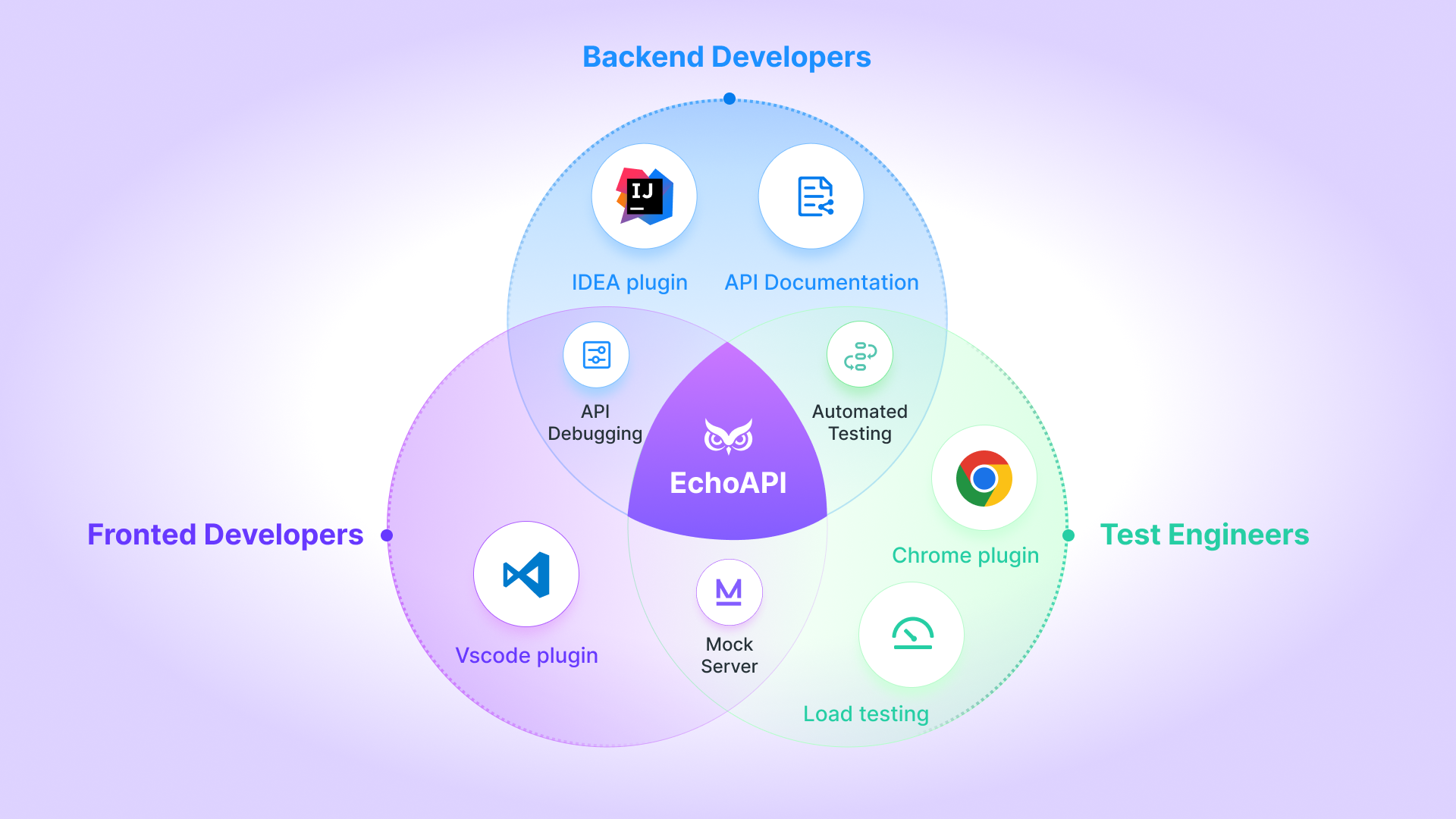
Which Tool Should You Choose?
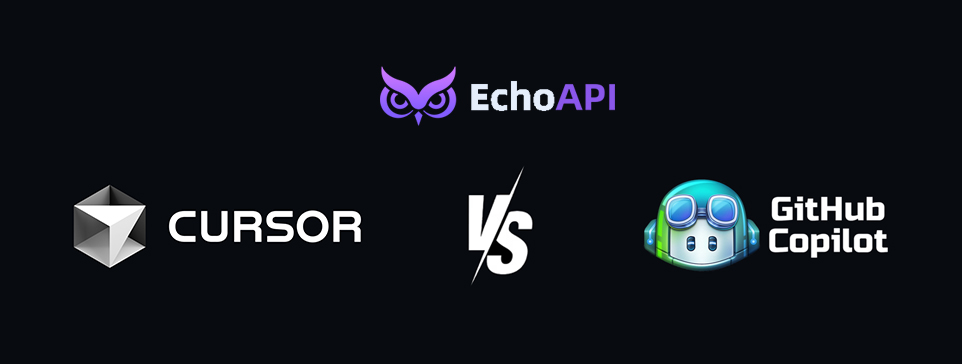
Ultimately, the choice between Cursor AI and GitHub Copilot depends on your specific needs:
Cursor AI is ideal for developers who need a customizable tool that adapts to their coding style, with excellent support for error detection and refactoring.
GitHub Copilot is perfect for those heavily invested in GitHub’s ecosystem and who need extensive language support and natural language code generation.
Conclusion
Both Cursor AI and GitHub Copilot are reshaping the future of software development. By understanding their strengths and limitations, you can select the tool that best meets your needs. Whether you prioritize customization, language support, or seamless integration—especially with powerful tools like EchoAPI—there’s a solution that will enhance your coding experience.
Try EchoAPI Interceptor today! https://www.echoapi.com/plugin/chrome?utm_source=6715d073